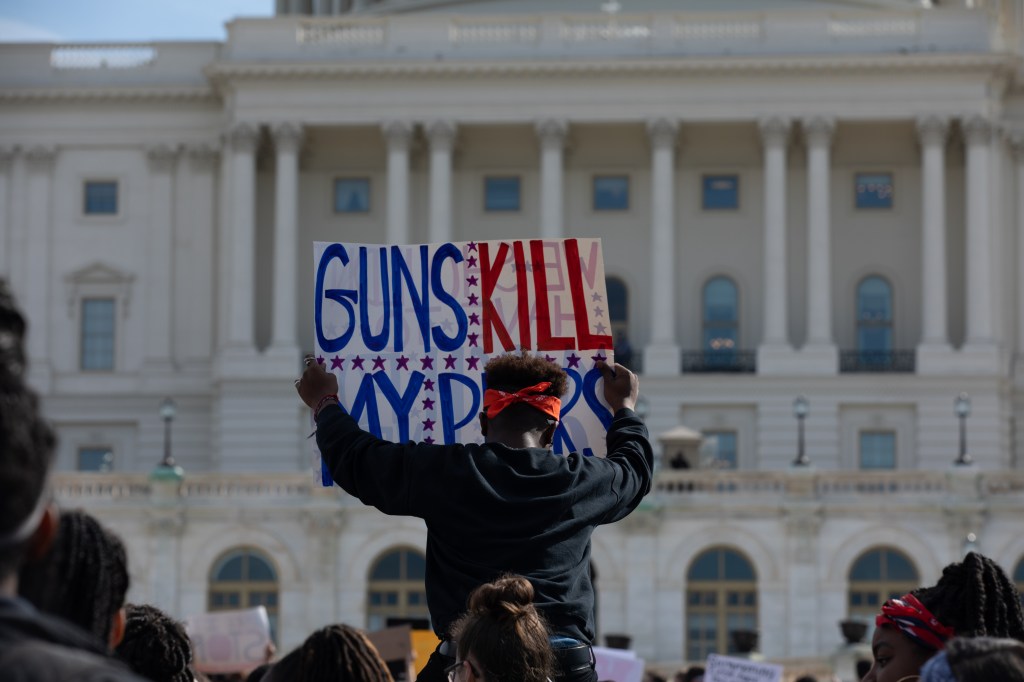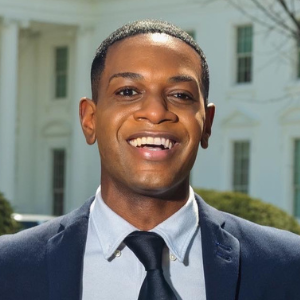“We should be very concerned about the real threat, again, to democracy…if we elect him into office again,” says Markus Batchelor, political director at People For the American Way.
Political experts say Black and brown communities should have serious concerns after former President Donald Trump renewed calls to send military troops to Democratic-controlled cities to address crime if he were to return to the White House.
“There’s no dog whistle…it’s full-on dog barking,” warned political scientist Christina M. Greer.
While on the campaign trail in Iowa this year, Trump said he was prevented as president from using his executive powers to use military units to combat crimes and violence in cities led by Democrats.
In a hypothetical second term, the leading Republican presidential candidate suggested he would not again fold to pushback from within his administration or military leadership.
“The next time, I’m not waiting,” he said, as reported by the Associated Press. He added, “We don’t have to wait any longer.”
Trump has long called out cities such as New York, Washington, and Chicago for being “crime dens” where city leaders are unable to address the violence and crime occurring under their watch.
Greer, a Moynihan Center Public Scholars fellow at CUNY, said it should be no surprise that Trump has a particular vendetta against so-called liberal cities.
“We know that many of these cities are run by Black people, people of color or women,” she told theGrio.
Greer added, “He and Republican Party members and, sadly now, conservative slash moderate Democrats are using the same dog whistle to say danger in urban centers means dangerous Black people and Latinos.”
While serving as president during the Black Lives Matter uprisings in 2020, Trump deployed the National Guard to use tear gas and rubber bullets on protesters in Washington, just feet away from the White House.
Markus Batchelor, national political director at People For the American Way, said Trump’s actions and rhetoric should be enough to show the American public what he is capable of doing if elected back in office in 2024.

“At this stage, he’s telling us what he will do if he’s in the White House again,” Batchelor told theGrio. “I don’t think he’s being coy about it at all.”
The political organizer said that in addition to the threat of militarization in Black communities, Trump poses a broader and very real threat to America’s democracy as we know it.
“We should be very concerned about the real threat, again, to democracy, to the rule of law, and whether we’ll lose democracy if we elect him into office again,” said Batchelor.
Though presidents have legal authority under the Insurrection Act to call on reserve or active-duty military to respond to unrest in states, political experts and historians have warned against the type of deployment suggested by Trump.
“To deploy the military, especially without local authority or local request, is a huge threat to democracy and to liberty,” said Batchelor.
“He’s doing what sort of dictators do in various countries where the military and the police force essentially work for you personally at your beck and call,” explained Greer, “which is the antithesis of what our military is supposed to do.”
The political scientist warned that, if elected, Trump would likely change the military structure by appointing leadership positions to “sycophants and loyalists.”
“Then we actually are in the scenario that he just laid out, which is the military then acts directly on behalf of the president and his whims – and not for the good of the country,” said Greer.
She said Trump’s strategy if he can’t win at the ballot box is to “take the country by force,” which he almost succeeded in doing with the insurrection attack on the U.S. Capitol on Jan. 6, 2021.
She added, “I don’t think enough citizens or media outlets believe in the capacity of Donald Trump or his followers.”
The threat of Trump’s undemocratic norms aside, Batchelor noted that when People For the American Way engages with communities in urban cities, they often raise concerns about public safety.

“The fact is there’s a real anxiety in cities,” said Batchelor, who fears those concerns could feed into the rhetoric of Trump and Republican politicians.
“We just have to make sure people don’t turn to those extreme messages because they don’t find solutions and kind of the principled leadership that we’re trying to offer on our side,” he explained.
Batchelor urged President Joe Biden and Democrats to pay attention to concerns about public safety, particularly Black communities that are “frustrated” by crime and economic insecurity.
“These communities need results,” he said.
Batchelor noted that Republicans have managed to pivot away from criticisms about the GOP’s refusal to work with Democrats to enact stricter gun control legislation. Instead, he said they are trying to steer the national conversation toward broader crime.

“They need to see the president and the Congress fighting more forcefully for an assault weapons ban,” he argued. “The Democrats have to get their message together so that this kind of hyperbolic rhetoric about crime doesn’t hurt their chances of being able to deliver.”
However, Greer noted that the data doesn’t necessarily back up Republicans’ claims that crime is on the rise.
“The data shows that crime is going down in most places, but the perception that it’s going up hasn’t changed,” she said.
Greer acknowledged that crime data is “complicated.” For example, while recently released FBI data shows that some crimes like property crimes and car thefts have increased, violent crimes and murder have decreased and returned to pre-pandemic levels.
“People just believe crime is up, and they see the quality-of-life issues around them,” said Greer, “and so they believe that the country is going in that direction, but the data does not bear that out.”
She added, “It doesn’t really matter sometimes where reality is if the perception is something that’s the opposite.”

Gerren Keith Gaynor is a White House Correspondent and the Managing Editor of Politics at theGrio. He is based in Washington, D.C.
Never miss a beat: Get our daily stories straight to your inbox with theGrio’s newsletter.
The post Critics say Trump’s call to deploy military in Black cities is more than a dog whistle appeared first on TheGrio.


